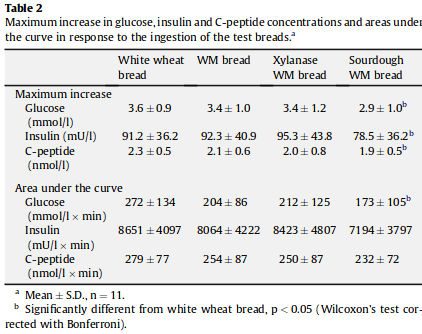I was watching Cooked (Netflix Documentary) Ep 3: Air and it spurred me on to dig into more on how how bread was made +100 years ago and spiked a curiosity I have had about civilizations use of grains in history.
I have long wondered from both a religious and scientific standpoint how bread can be so bad for our metabolism if civilizations have been using it for so long, without deranged metabolisms and heart disease at the levels we do today. I know that, historically speaking, they probably didn’t ingest the quantity of bread that the modern diet does, but is that the only explanation?
I was intrigued when Cooked talked about how all bread prior to our industrial approach to food was basically long-fermentation sourdough and in many parts of the world it still is. I began to dig around the web to see if any studies have been done on blood sugar or insulin responses on long-fermentation sourdough versus modern breads.
I found two studies online:
- http://www.uoguelph.ca/news/2008/07/sourdough_bread.html
- http://www.sciencedirect.com/science/article/pii/S0733521009001738
I cannot find the actual detail of the first study and the second one is available for purchase. Does anyone know anything about these studies or seen the detail? Before purchasing, I thought I would see if anyone on the forum had already researched this topic or new of any other studies that had been done.
Your help would be much appreciated. It would satisfy a curiosity I have had for a while. I started Keto on October 1, 2017. I am down 25lbs and feeling great. I have not had bread at all, and not really looking to add it back, just curious about this topic.



